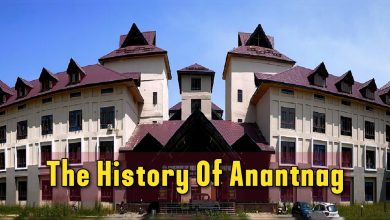The History Of Pulwama

Pulwama, nestled in the heart of the Kashmir Valley, boasts a rich and vibrant history dating back centuries. From ancient kingdoms to modern-day challenges, the district has witnessed a fascinating journey.
Early Beginnings:
Traces of human habitation in Pulwama stretch back to the Neolithic period, with archaeological findings suggesting settlements around 3000 BCE.
Legend associates the name “Pulwama” with “Panwangam,” meaning “a place woven together,” reflecting the convergence of four hamlets that formed the early town.
Awantipora, located within the district, served as the capital of the ancient Hindu kingdom of Kashmir during the 7th and 8th centuries AD.
The ruins of the Awanti Swami temple, dedicated to Lord Vishnu, stand as a testament to the region’s glorious past.
Medieval Era:
Pulwama’s strategic location along the Jhelum River made it a crucial trade route, attracting merchants and fostering cultural exchange.
The influence of Islam gradually spread in the region, leading to the construction of numerous mosques and shrines.
The emergence of Sufi mystics further enriched the spiritual landscape of Pulwama.
Modern Times:
In 1979, Pulwama was carved out of the Anantnag district, becoming a distinct administrative unit.
The district’s fertile plains and abundant water resources have made it a hub for agriculture, earning it the nickname “Rice Bowl of Kashmir.”
Saffron cultivation, particularly in Pampore, has also gained international recognition for its superior quality.
Despite facing various challenges, Pulwama’s resilience and spirit of community remain its defining characteristics.
Cultural Tapestry:
Kashmiri language and culture dominate Pulwama, with traditional music, dance, and handicrafts flourishing in the region.
Sufi music and poetry hold a special place in the hearts of the people, reflecting the district’s rich spiritual heritage.
Looking Ahead:
Pulwama stands at a crossroads, balancing its historical legacy with the aspirations of a modern society. As the district strives towards progress and development, preserving its cultural heritage and addressing contemporary challenges will remain key to its future success.




